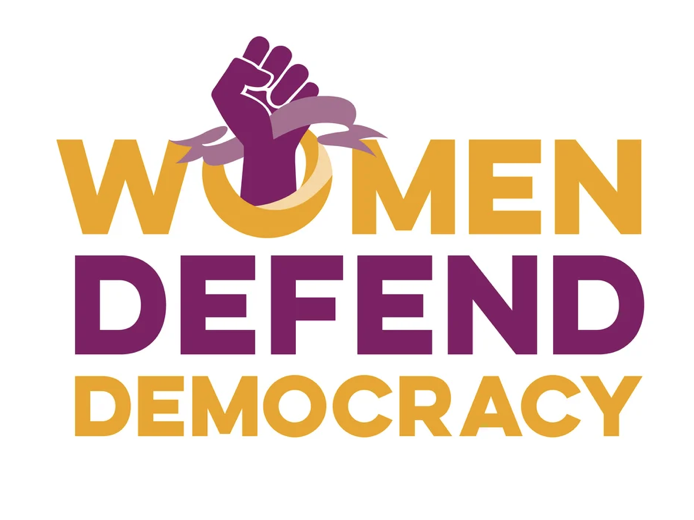LWVDC 2025 Year in Review
The end of the year is a prime season to reflect on LWVDC’s accomplishments in 2025 and to prepare for the important work and opportunities ahead. While it has been a challenging year, the League has been hard at work defending democracy and laying the foundation for years ahead. This includes implementing the League’s nationwide Unite & Rise 8.5 initiative to mobilize 8.5 million voters and drive change through a network of people committed to defending our democracy. And we launched our own Democracy Tools page to connect people with information about living and voting in DC.
As we take stock of our efforts and celebrate our achievements, we want to express deep gratitude to this community for your inspiring work! We look forward to continuing this work into 2026—without you, we would not be able to do what we do to promote democracy and protect voting rights in DC.
We wish you and yours a happy, healthy new year and look forward to seeing you at League events soon. Happy New Year from all of us at LWVDC!

Fighting to Preserve DC’s Autonomy While We March Forward Toward Statehood
During a year marked by attacks on DC’s autonomy, the LWVDC statehood team launched a new page on Substack to share critical information and perspectives. When you sign-up, you will receive one update every Friday–straight to your email inbox and the Substack app. It also includes a tracker of the current bills in Congress attacking home rule and other resources. Check it out here: https://lwvdc.substack.com/.
These threats to DC’s autonomy have been met with consistent push-back from LWVDC members and our partners. For example, when Congress passed a continuing resolution (CR) to fund the federal government for an entire fiscal year–instead of passing a budget–it also infringed on DC’s budget autonomy by forcing local spending to conform to FY2024 budget numbers instead of allowing DC to implement its FY2025 congressionally approved budget and spend locally-raised tax dollars. LWVDC responded–in close collaboration with the national League and by calling on friends and family across the country–to oppose this congressional overreach and support the DC Local Funds Act. Indeed, LWVDC members have joined a variety of other activations where we can, seeking ways to make our voices heard on Capitol Hill.
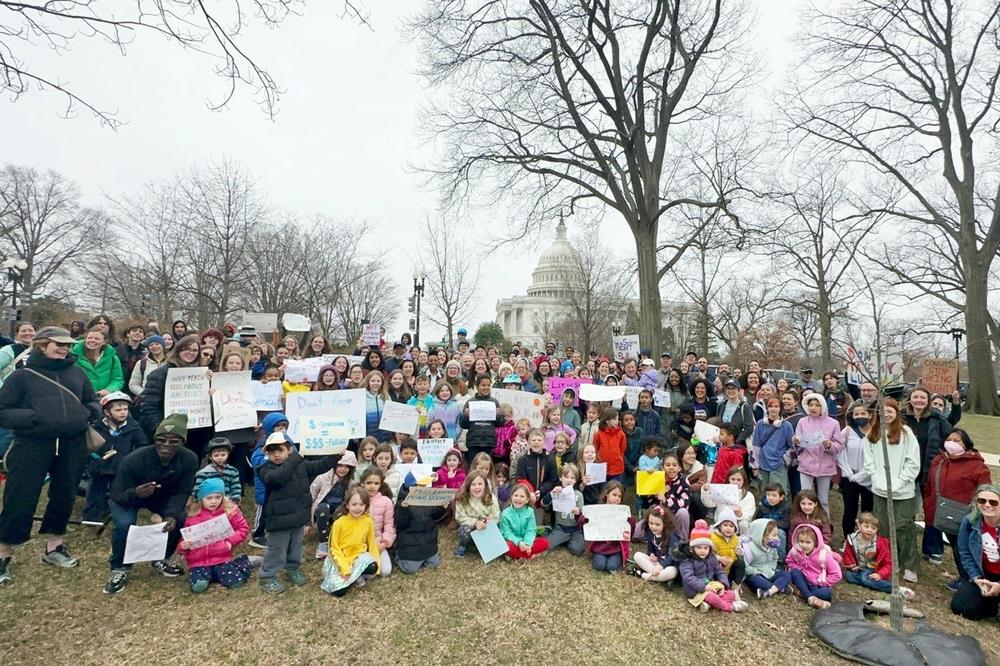
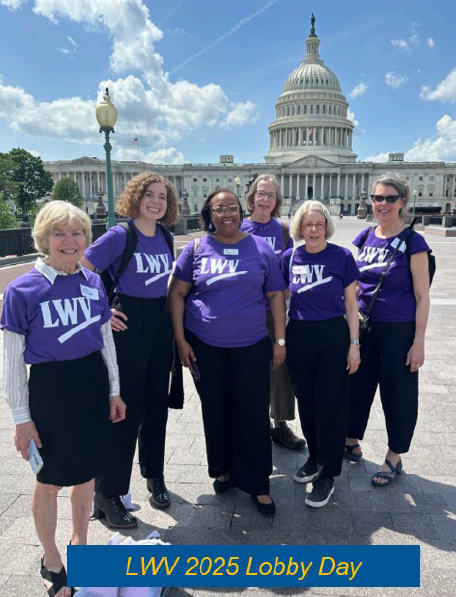
Of course, the year was not all doom and gloom–as attention grows around threats to DC’s autonomy (and what that means for the state of democracy nationwide), we can feel momentum building for DC statehood. We are thrilled to report that 36 state Leagues have adopted our resolution in support of statehood. We have joined several screenings of The Last Battlefront film. And more and more DC residents are sharing their stories about what statehood means to them. Want to tell your story? Learn more here.
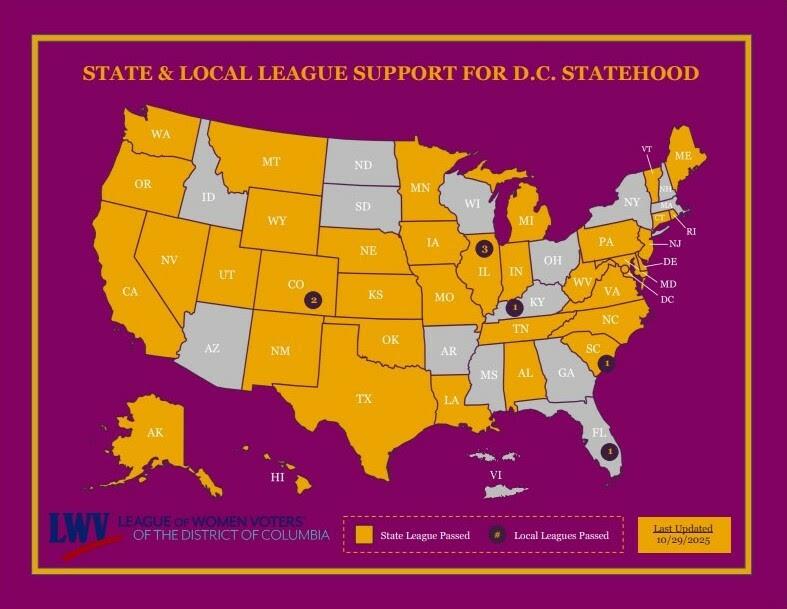
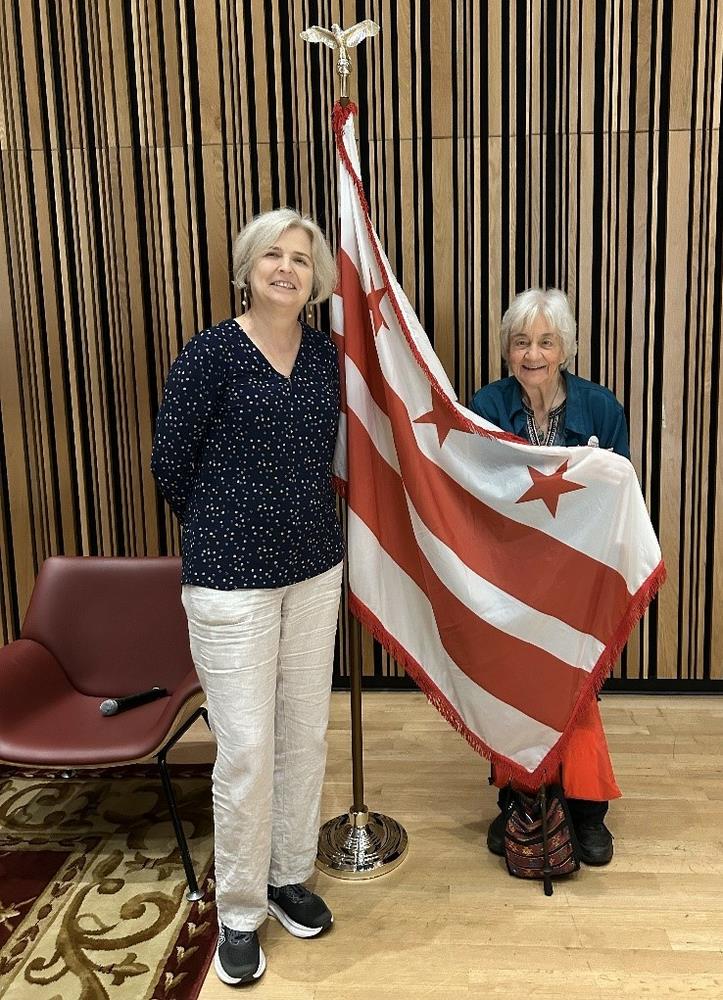
LWVDC’s statehood team also launched a new game this year, D.C. Statehood Now! A Game for More Democracy. In this educational game, players work together, trying to get the DC statehood bills passed in the House and Senate during one session of Congress. Along the way they use education, meet opportunities and setbacks, and learn about actions and events that are part of the tapestry of our struggle for full rights.
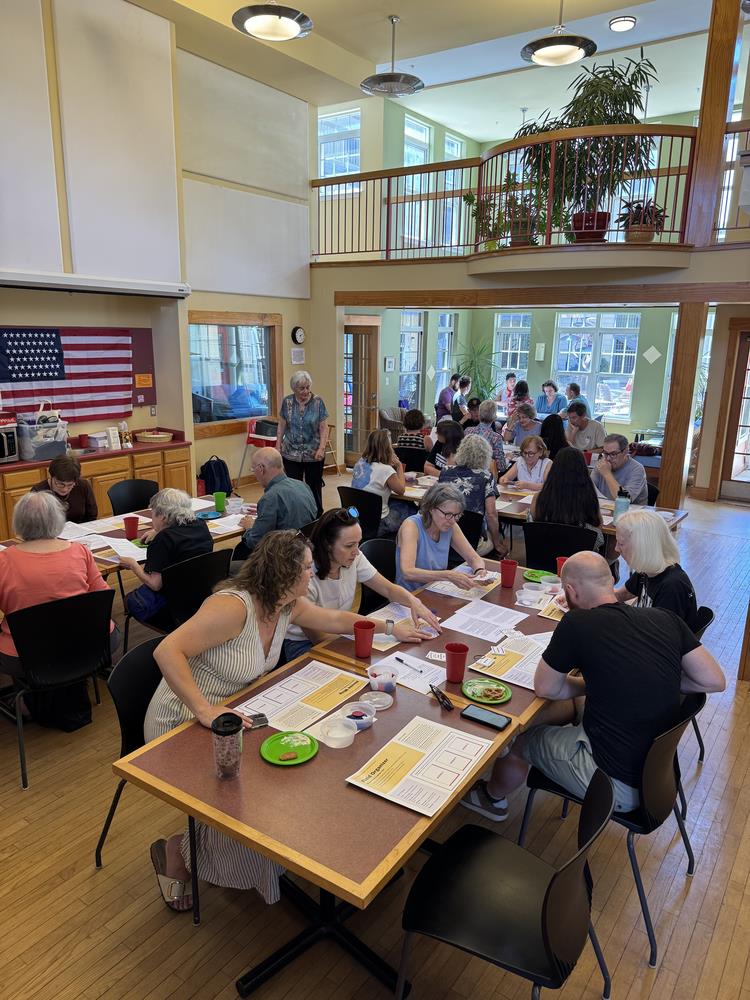
Serving and Engaging Voters
LWVDC volunteers have been very busy this year: registering new voters—from youth to new citizens, helping make the voting rights of incarcerated DC citizens a reality, and engaging and educating voters in new places and ways. This work will not slow down in 2026, as we seek to leverage our partnerships and build on this foundation in the lead up to the elections.
This year we developed new training for LWVDC volunteers who register voters. That voter registration training and guidance are available here. This updated material addresses recent changes in voting procedures and explains how to ensure complete, accurate, and legible voter registration applications are submitted to the Board of Elections. This update and accuracy are critical to making our hard work count on election day!
There were two special elections in DC this year, and LWVDC was on hand to educate and empower voters. In the lead-up to July’s special election for the Ward 8 Council seat, we co-sponsored a youth-led candidate forum. We were proud to be part of this student-centered event designed to foster deeper engagement between students, communities, and candidates.
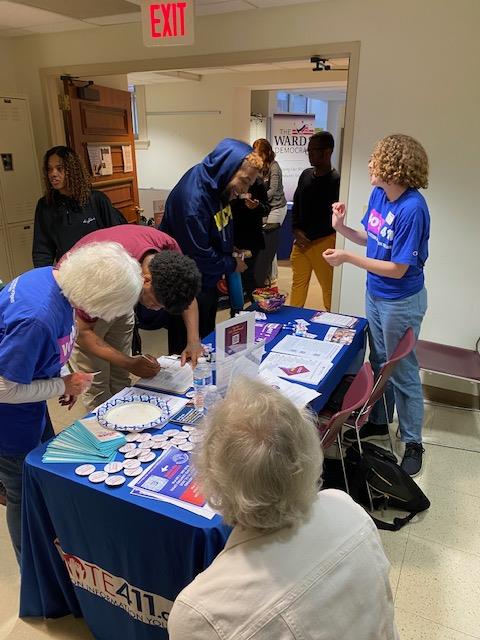
There was also a special election for the ANC 7F08 seat at the DC Jail, to replace a Commissioner who was moved. Throughout the year, LWVDC volunteers showed up to conduct voter registration, provide voter education sessions, and mail materials to voters. On election day, LWVDC was invited by the Department of Corrections (DOC) to monitor the special election–to ensure transparency and help protect the rights of voters during the all-day election.
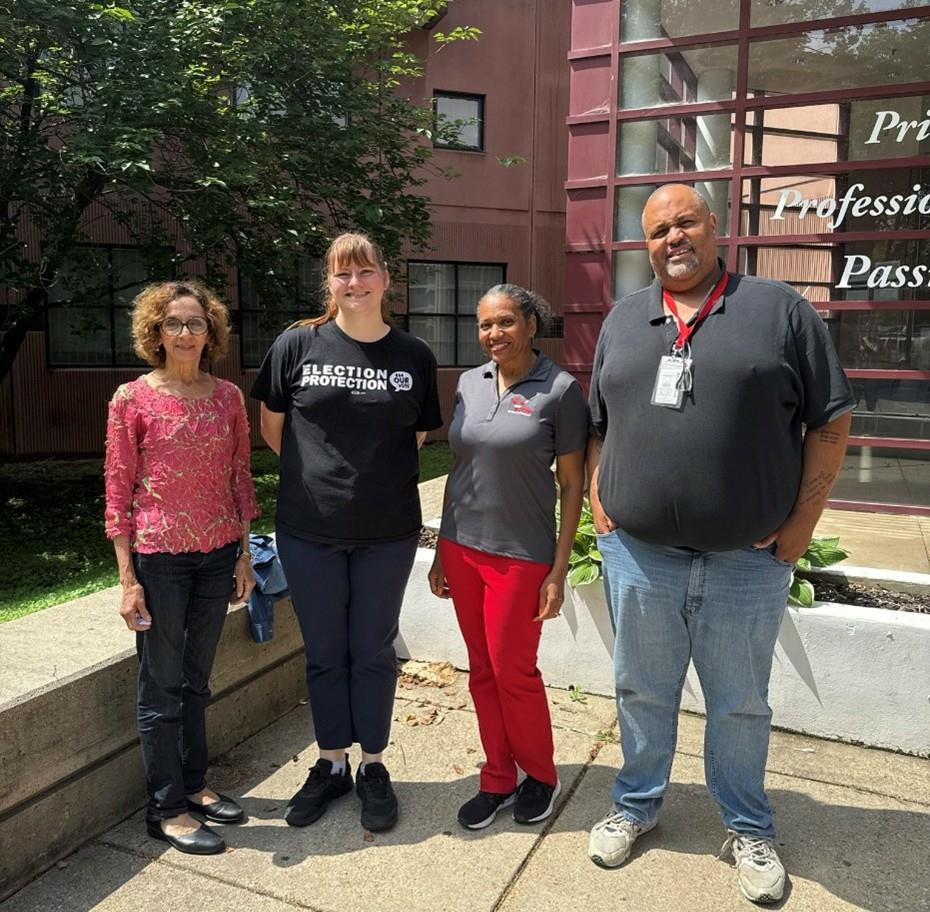
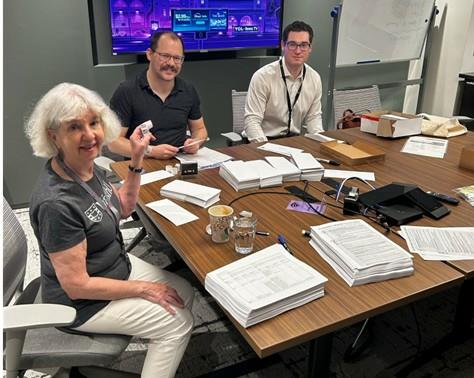
Our League has also been a constant presence at naturalization ceremonies throughout the year–maneuvering challenges to register DC’s newest voters and to celebrate these very special days with them and their families.
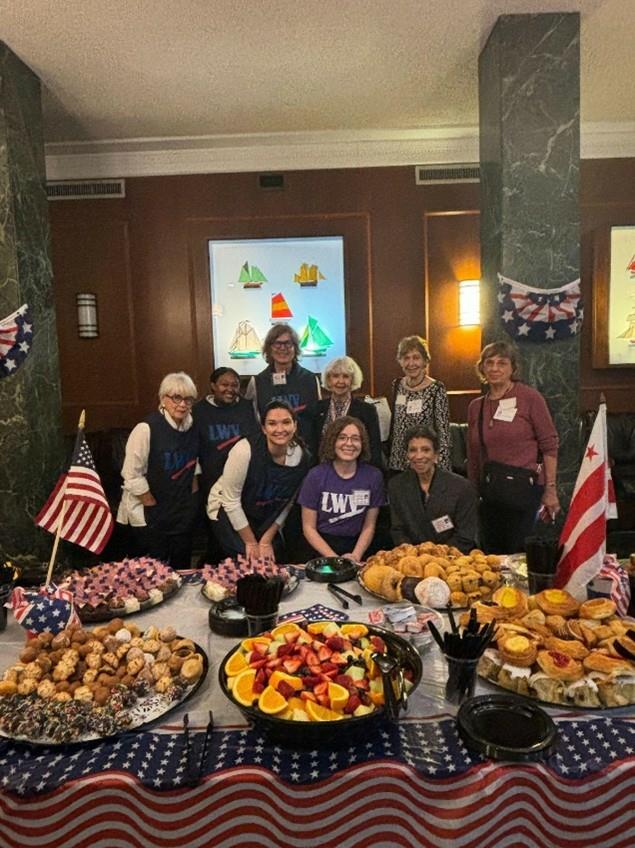
At the same time, LWVDC recognizes that our immigrant friends and neighbors suffer fear and uncertainty about their safety and their fate, regardless of citizenship. Their rights and protections are being trampled as discrimination and disinformation grow. The League has long been a powerful voice for the disenfranchised, and this year we launched an Immigrant Resources Webpage, a DC Local Resources webpage, and ¡El Momento es Ahora: Estado Para DC! The Time is Now: Make DC a State! a DC Statehood video in Spanish–all to provide information, education, and empowerment..
In the lead up to 2026, LWVDC volunteers have been showing up in communities and at events across the city, preparing voters to participate in upcoming elections. We have attended events on college and high school campuses–fostering enthusiasm and awareness among new and future voters. We emphasize a peer-to-peer approach, working with partner organizations and student leaders, directly, to expand our reach as we connect with and engage a new generation of voters. We are also building information about voting and DC statehood into presentations about civics and civic engagement. And we are getting more young people involved with the League, including a new pilot program for youth fellows and inviting high school students to engage with us as part of their community service opportunities.
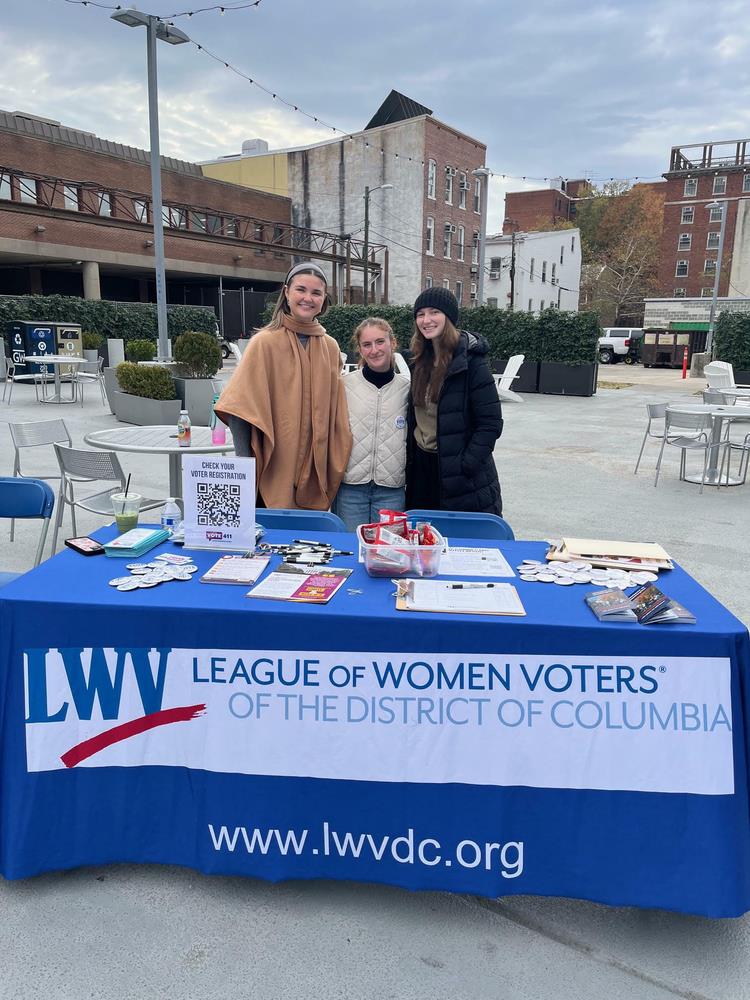
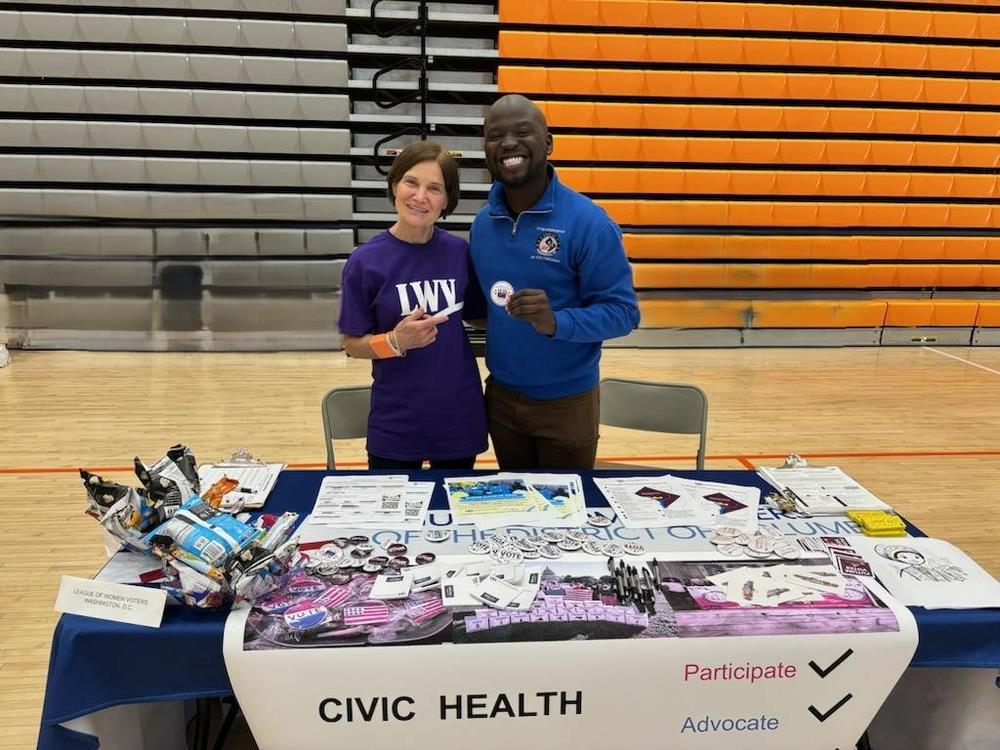
As just one more example, LWVDC partnered with the Capitol Riverfront BID during their summer concert series. We set up a table at these events throughout July and August, where we provided information about voting, shared information on DC statehood, and several people signed our petition for statehood or asked questions about things like the special election or ranked choice voting. These were fun, well-attended events where LWVDC successfully engaged voters from across the DMV.
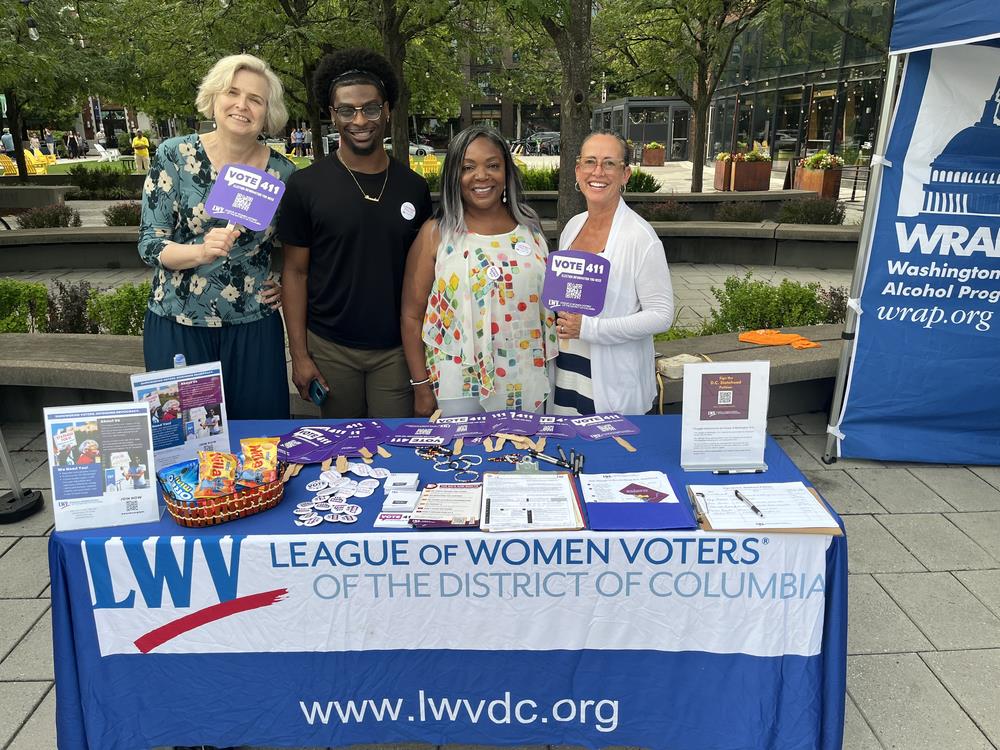
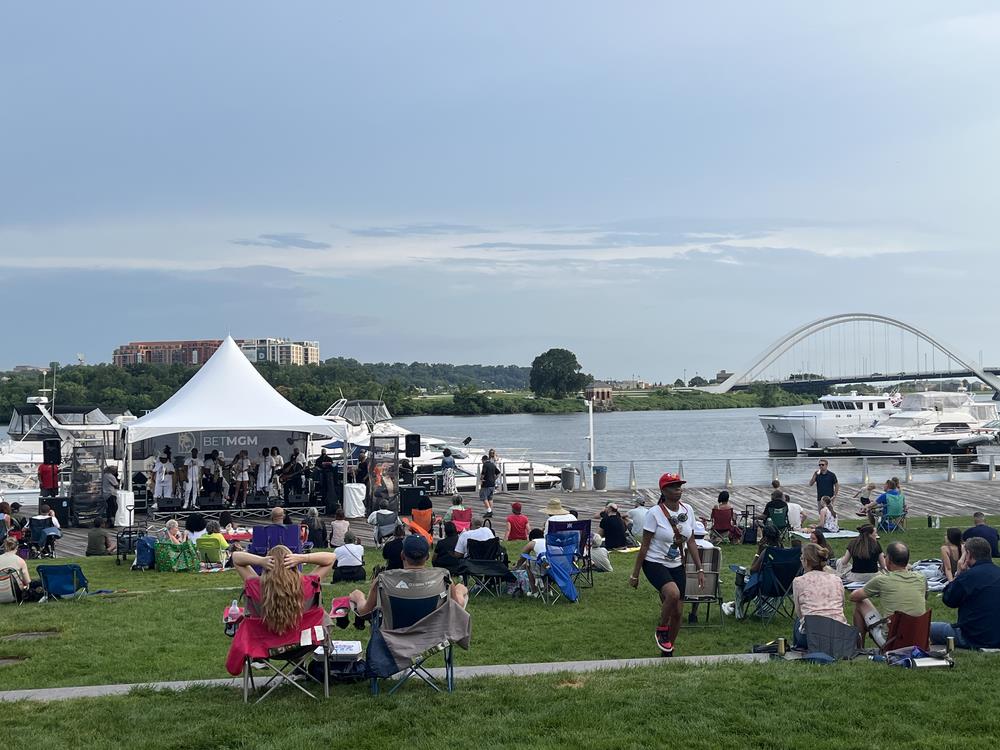
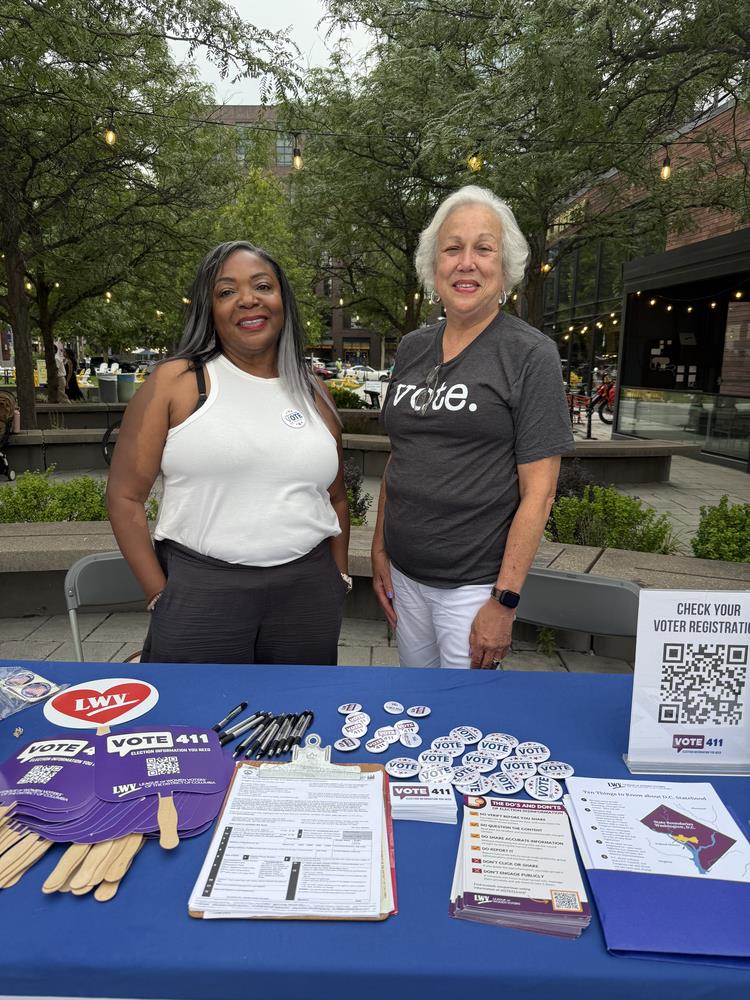
ICYMI
- Vote411: This year Vote411 efforts focused on the July 15 Special Election for Ward 8 Council. Not only did LWVDC work to provide information to all Ward 8 voters, but printed copies of our Vote411 voter guides were provided to DC jail residents and they were mailed to 340 incarcerated Ward 8 voters in Bureau of Prisons facilities around the country.
- Climate: LWVDC has continued a steady drumbeat of climate advocacy, events, and education this year—pushing back against gas pipe replacements that would undermine DC’s clean energy goals and supporting a Bottle Bill that would boost recycling and curb pollution.
- Federal Judiciary Study: This year, LWVDC participated in LWVUS's nation-wide and in-depth federal judiciary study–which resulted in the release of this Statement of Position on the Federal Judiciary, emphasizing overarching principles of transparency, accountability, independence, and ethics.
- Initiative 83: LWVDC strongly supports the implementation of Initiative 83—a ballot initiative for ranked choice voting and letting independents vote in the DC primaries. The initiative passed in 2024, with 73% of voters in favor. This year, LWVDC voiced consistent support–encouraging the DC Council to appropriate funds for the Board of Elections to update and revise its systems and opposing periodic efforts to overturn the will of the voters. Read some of our testimony and letters here.
